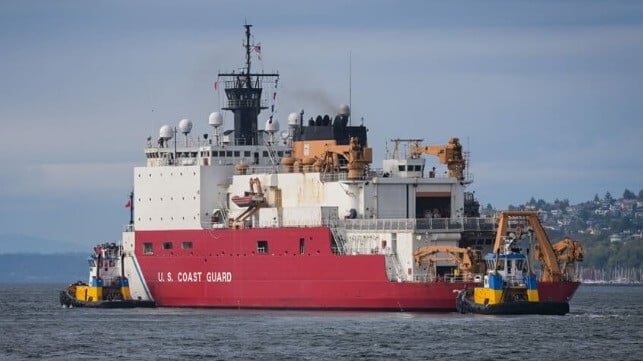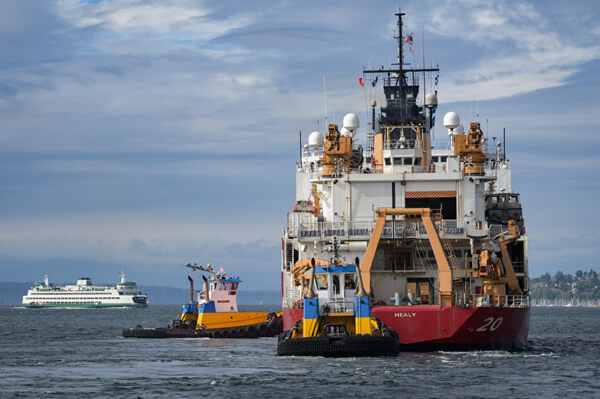U.S. Coast Guard Cutter Healy Resumes 2024 Arctic Mission After Fire

In a rare fall deployment, the U.S. Coast Guard icebreaker Healy, the United States’ largest polar icebreaker, is being redeployed to the Arctic after its 2024 mission was cut short by a fire. Six weeks ago, the icebreaker returned to Seattle just two months into her mission after an engine room fire in late July while she was off Banks Island, Canada in the first stage of her planned mission.
Healy departed Seattle, yesterday, Tuesday, October 1 beginning a new months-long Arctic deployment. The new mission is scheduled to continue till mid-December and restores the U.S. presence and research capabilities in the Arctic. Healy is coming up on the 25th anniversary of her commissioning in November 1999 and along with Polar Star are the USCG’s only large icebreakers capable of research in the polar regions.
The effort to get the ship back underway is seen as critical as other nations are becoming more active in the Arctic. China is highlighting that along with Russia is just completed a joint patrol which included sending the Chinese Coast Guard into the Bering Sea reaching its new highest point north. The USCG has reported tracking both Chinese and Russian vessels in the Arctic this season.

Healy outbound from Seattle six weeks after her premature return due to a fire (USCG photo)
During its late-season mission, Healy’s crew will support scientists conducting three distinct science missions. The first mission supports the Arctic Port Access Route Study (PARS) with bathymetric mapping in the Chukchi and Beaufort Seas. The second mission will embark 20 early career polar scientists and their mentors on an Arctic Chief Scientists Training Cruise sponsored by the National Science Foundation and University-National Oceanographic Laboratory System to conduct multidisciplinary research, including mapping. The third mission of the deployment will support other science of opportunity to include seafloor mapping for the National Oceanic and Atmospheric Administration Office of Coast Survey. Other science of opportunity across a broad spectrum of disciplines will also be supported as time and weather allow.

that matters most
Get the latest maritime news delivered to your inbox daily.
It was not the first time Healy suffered a life-threatening fire. In July 2020, she caught fire while 60 nautical miles off Seward, Alaska on her way to the Arctic. It was an electrical fire which was extinguished in 30 minutes, but one of her motors was badly damaged. She spent the winter of 2020-2021 in dry dock receiving a new motor that had been built for her in 1999 and stored for over 20 years.
Keeping the vessel active is critical for the United States as the program to build the next generation of icebreakers is years behind schedule. The USCG is also moving forward with a plan to acquire a commercial icebreaker to supplement the fleet starting in 2026. The other vessel, Polar Star, has been in service for 48 years and currently is undergoing a life extension overhaul.
